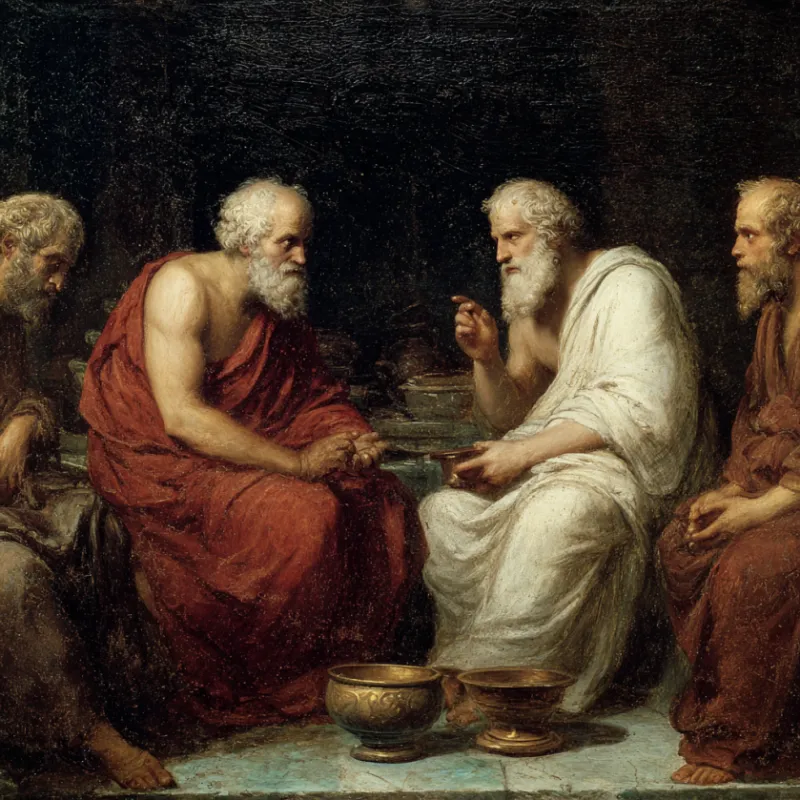The Republic's Equilibrium: A Spiritual Pursuit
The concept of Nash Equilibrium, a cornerstone of game theory, describes a state where every participant in a game achieves the best possible outcome, given the choices of the others. Imagine a society where each individual is "better off no matter what their neighbor does"—this is the ideal equilibrium we envision for a thriving collective.
If we consider a "collective will" that guides society, much like a shepherd guides a flock, and if this collective will consistently leads to such an optimal state, it might feel as though we've glimpsed the all-knowing, all-powerful. However, this line of thinking risks appearing conceited, as the struggle between good and evil resides within every human heart. Our focus here is on how individuals interact within a collective society, distinct from the unique dynamics of family relationships. We are imagining the ideal state, the Republic.
AI video generated in Descript
In this ideal Republic, citizens would exist in a Nash Equilibrium. Each individual in this imagined polis would be better off regardless of the decisions made by others. This serves as a theoretical ideal, a crucial benchmark against which to measure the realities of our societies. How far do we truly deviate from this baseline of Nash Equilibrium¹?
What, then, is the Nash Equilibrium in a spiritual sense? We're not referring to dogma or specific religious tenets, but rather to the Socratic tradition of living a life worth living. This ancient wisdom, far from being a relic, feels like a homecoming—a return to the classics that ignites within us a passionate courage and pious curiosity, propelling us into new states of being.
This is the essence of piety: adhering to the law of nature, embracing the art of living, and, crucially, not forgetting. The transfer of this profound wisdom, in a way, almost defines the divine. Ultimately, goodness, or the ideal way of existing in the world, is defined by us. Self-referential, perhaps, a "strange loop" in the sense that Douglas Hofstadter explores how complex, self-referential systems can give rise to our sense of 'I' and the meaning we create².
¹ Nash, J. F. (1950). "Equilibrium points in n-person games." Proceedings of the National Academy of Sciences of the United States of America, 36(1), 48-49.
² Hofstadter, D. R. (2007). I Am a Strange Loop. Basic Books.

